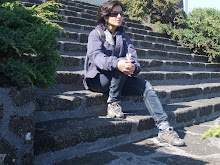All governments say they want to stop the flow of illicit arms, but listening to many of them at the UN today, it became clear that not many are willing to do anything about it.
This is because it will involve much greater transparency on how they report on arms transfers and this immediately makes governments uncomfortable.
Amnesty International’s findings show that the biggest source of illegal arms is through diversions from legal stockpiles and authorised trade. However, because current reporting by governments on imports, exports and arms transfers is so poor, it is near impossible to establish where and how deadly weapons are getting diverted.
So if States want to be able to find out how this is happening and put a stop to it, then they have to commit to greater overall transparency by reporting publicly. States can’t claim “confidentiality” due to security needs on the one hand and miraculously expect illegal arms transfers to stop on the other. It’s not a one way street.
But another reason Amnesty International wants to see public reporting on arms transfers in the Arms Trade Treaty (ATT) is so that people like us can actually see what our governments are doing – who are they giving arms to and are they taking enough care to ensure these arms don’t end up in the hands of human rights violators?
Read the rest of my piece on the Amnesty International USA website.

